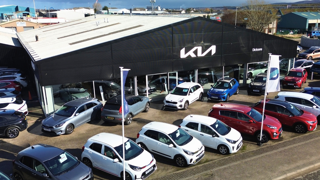AM's regular columnist Professor Jim Saker, emeritus professor of Loughborough University's business school and president of the Institute of the Motor Industry, ponders the reasons behind the UK Government's sudden support of the motorist and outlines the pressing need for 'omnicompetence' in vehicle workshops.
If it wasn’t so serious you would have to laugh at the scenarios being played out between our Government and the UK motor industry.
The narrative is so confused that it is difficult to unpack the objectives let alone the strategy.
Rishi Sunak claims that his Government is now on the side of the motorist, implying of course that in the previous 13 years the previous incarnations of Conservative administrations were negative. We then have the 2030 to 2035 shift on the ban on ICE vehicles with Kier Starmer stating that a Labour Government would go back to the 2030 deadline.
The uncertainty may slow the movement to EVs but the emphasis is still there.
The one thing that is sure is that whatever the Government might say over the next few years the sophistication of new vehicles will continue to accelerate.
This presents a major challenge to the aftersales side of the retail automotive sector a challenge that appears to be going under the radar when it comes to policy decisions.
With increased connectivity comes the challenge of data security and with more sophisticated ADAS systems the technical ability to undertake more complex installation and calibration checks becomes essential. Add to this the challenge of the different power trains that are in use, the level of expertise required for both current and future technicians couldn’t be higher.
The technician of the future will need to have a multi-faceted skill set. As the vehicles change so must the skill set of people working in the retail networks.
This will require a change of mindset.
Many dealerships are focussed, driven by the manufacturer, on new car sales with big financial rewards for hitting sales targets. Over the next few years there will be EVs, Self-Charging Hybrids, PHEVs and legacy ICE vehicles all needing to be serviced.
In addition to this, the issue the increased sophistication of ADAS systems and security around data involved with connected cars needs to be tackled.
There will be a need for omnicompetent technicians who can tackle all power trains and all the technical challenges attached to ADAS and connectivity.
It will no longer be viable to have technicians who can only work on certain vehicles.
Both the businesses and also the employees will have to invest time and resource into future proofing their skills. Omnicompetence delivers for both the business and the individual.
These types of highly skilled people are going to be in great demand as the technology changes, but they will also be delivering value that guarantees not only the after sales but also the future sustainability of the whole organisation.
The IMI continues to develop training qualifications that address these issues with Techsafe embracing not just the EV dimension but the issue of security within the connected vehicle systems.
Author: Professor Jim Saker




















Login to comment
Comments
No comments have been made yet.